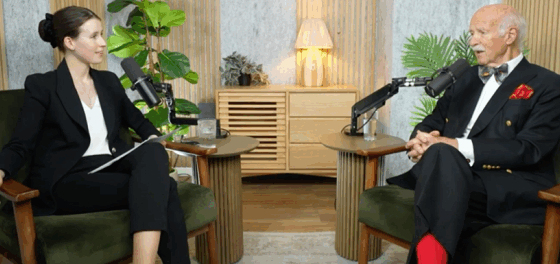This week it’s a weekend edition: Shy technology for luxury, AI hotel booking agents, Augmented reality in ear, Keeping talent with structure not freedom and more.
Hello,
“I’m just going to take a minute to write my weekly email newsletter”, is such a rookie statement. Yet I often find myself thinking it. Keeping myself informed, sharing things I think you will like, writing opinions – it takes more time than I want to admit. So, apologies for missing out last week. But here we go and have a great weekend. And don’t forget to share the newsletter with at least one person this week.
Best, Martin
-
Absolutely not boring newsletter Hotel Nuggets, mentioned me and has great ideas, including hotels renting our screens for business travelers. Check it out.
Klairhaus is a boutique brand of home office accessories crafted by artisans in Europe with a generational heritage of quality both in materials and manufacturing. Using only natural materials, discover accessories designed to make your work life better.
Support the newsletter, treat yourself to great office gadgets.
“Shy Tech” and Luxury Design
How visible should technology be in the hotel design? In the past it was an added value, hotels showcased their new technology and customers came to experience it for the first time. But now that tech is ubiquitous it lost the novelty factor. 100 years ago, going to a hotel to see built-in TVs was a big deal. Today not so much. Technology has a different role now, to be invisible to make life better while not being noticed. To sit in the background and give the impression of magic. But this is a big shift in design style for hotels. Hotels are designed for “wow”, but now we want tech to not be noticed and just produce small bits of magic. Interior designers, architects, general managers all need to re-think how tech comes in play in hotel design. And the speed of change, a fancy connected mirror built into the design brief, will be obsolete by the time the hotel opens. Tech in hotels isn’t an obvious problem. There is a generational shift that needs to occur, today’s create hotel creators weren’t born with tech “already there”, they discovered it. Design school principles are still focused on colors, shapes and furniture. How long until we get those interior designers who embed digital experiences smartly and not just for the novelty effect?
HIDDEN TECHNOLOGY LUXURY
AI hotel agents and hotel bookings
Bookline.io, HotelPlanner.ai and others introduced AI-powered booking agents that can converse in multiple languages, managing thousands of calls daily. The use of AI in customer service and reservations is brilliant. Some stats claim that 22% of bookings today are still done on calls. The thing I wonder is how this works when the booking is not following a regular path. Guests call because they need something special, the regular booking can be done on the website, the calls are because they need wheelchair access connecting rooms etc. And the website isn’t clear about that. But will the AI agent be? How frustrated will the guest be if the call is as ambiguous (or wrong) as the website? Or is this just not a real problem?
VOICE AI IN HOTELS
About me: I'm a fractional CMO for large travel technology companies helping turn them into industry leaders. I'm also the co-founder of 10minutes.news a hotel news media that is unsensational, factual and keeps hoteliers updated on the industry. Robotaxis and urban mobility
Amazon’s autonomous vehicle company, Zoox, is set to introduce its custom robotaxis in San Francisco and Las Vegas, initially for employee use, with public access planned for the following year. Travel is growing, it will continue to grow. We’re getting better at moving around, with ride-apps we don’t need to haggle with a local cab and hope we aren’t being scammed (in many places). In Europe Robotaxis will compete with public transport, in US cities it will become public transport, without the infrastructure costs. More transport always fuels growth and more economy.
ROBOTAXIS IN CITIES
Can digital platforms optimize travel experiences?
McKinsey highlights the growing importance of travel experiences as a primary motivator for destination choice, with a market potentially worth over $1 trillion. Despite this, nearly half of these bookings still occur offline. As the report suggests if we can make the booking easier, we can increase the revenue. Every time, the purchasing experience is made easier – revenue increases. Something hotel websites still has a lot to improve. Apple stores without cashiers, 1-click purchase on amazon, etc. Nobody increased revenue by making the purchasing worse.
EXPERIENCE BOOKING FUTURE
The future of augmented reality is in our ears?
A new service by Hopscotch Labs uses AI and headphones to provide location-based information, aiming to create an intuitive experience for users in physical spaces without relying on screens. The founder, illustrates his foresight in location-based services and information architecture. Wearing headphones all the time has become almost normal, rude in many cases, but normal. Innovations like this can give hotels a unique opportunity to enhance guest experiences through location-based services, potentially increasing personalized experiences directly. Curious to see how else this could be used with hotels.
AI AUGMENTED REALITY
The best employees want structure, not freedom
In hotels, we face tough challenges, and retaining top talent requires fresh perspectives. High-performing employees thrive in structured environments where expectations are clear, solutions are actionable, and their contributions are recognized. The myth that they are all seeking freedom isn’t what employees want, it is what entrepreneurs want. Top talents value leadership that moves quickly on improvements and surrounds them with equally skilled teammates. Chaos and incompetence drive them away, but with the right approach, we can create a workplace where A-players want to stay and grow. Sometimes, the best insights into building such an environment come from looking beyond our industry for inspiration. But there’s a big difference between being at a front-desk and writing code.
EMPLOYEE RETENTION STRATEGIES
Manipulating AI for reputation management
SEO and reviews have been the key to build online reputations so far. But the paradigm is going to shift, with quick AI answers things are going to change. The potential of AI optimization (instead of search engine optimization) for reputation management is compelling. Citate.ai is aiming to influence AI chatbots’ output. Manipulating AI could be a double-edged sword. How might influencing the information AI consumes affect the authenticity of guest reviews and hotel reputations? It is going to happen, that’s for sure.
AI REPUTATION MANAGEMENT
Podcast: I was invited on the Hospitality Daily Podcast and spoke about technology in hospitality, some thoughts on what wont change in hospitality, and why I co-founded 10minutes.news. Best, Martin





